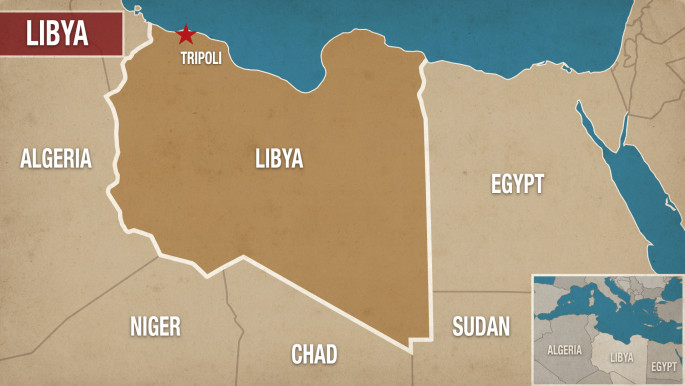Libya's prime minister urges talks over captured oil ports
Libya's prime minister has called for urgent talks after forces opposed to the unity government seized control of its oil ports.
The capture of the four eastern oil ports in the so-called "oil crescent" was a major blow to Prime Minster Fayez al-Sarraj's UN-backed government, which is almost entirely dependent on oil revenues for its income.
Sarraj said the offensive - led by controversial military strongman General Khalida Haftar - put the country's future as a united nation in serious question, renewing fears of a civil war.
"I call on all sides to halt provocative actions and sit down urgently at the same table to discuss a mechanism that would enable us to get out of this crisis and put a stop to the conflict," Sarraj said.
"I am not prepared to rule one part of Libya nor to lead a war against another part."
The assault on the oil ports is the first fighting between the rival administrations since Sarraj established the Government of National Accord in Tripoli in March.
The Petroleum Facilities Guard, which had been responsible for the defence of the oil ports, has played a prominent role in the fighting against the Islamic State group in the coastal city of Sirte for months.
Haftar's forces took advantage of the absence of many of the guard's members to seize the ports in just three days.
The capture of the "oil crescent" means the rival administration now controls virtually all of the eastern Cyrenaica region.
The unity government is the centrepiece of UN efforts to end five years of chaos in Libya since the overthrow and killing of dictator Muammar Gaddafi.
It now faces a tough battle to assert its authority over the rival administration in the east.
The US and its European allies issued a joint statement condemning Haftar's offensive and calling for the return of the oil ports to unity government control.
UN envoy Martin Kobler, who has repeatedly called for a halt to the offensive, is to brief the Security Council on the crisis on Wednesday.
![Libya port of Brega [Getty] Libya port of Brega [Getty]](/sites/default/files/styles/large_16_9/public/media/images/175A5041-20ED-4A98-9483-B35D1F27B35D.jpg?h=d1cb525d&itok=0z6YFcuu)

![President Pezeshkian has denounced Israel's attacks on Lebanon [Getty]](/sites/default/files/styles/image_684x385/public/2173482924.jpeg?h=a5f2f23a&itok=q3evVtko)



 Follow the Middle East's top stories in English at The New Arab on Google News
Follow the Middle East's top stories in English at The New Arab on Google News


